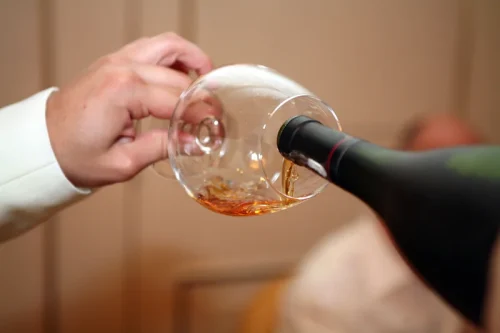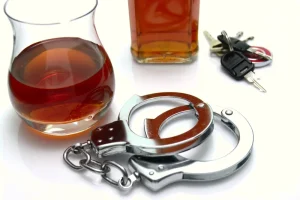
While hyperhidrosis has no cure, there are a variety of treatment options available to help you manage your symptoms. The condition isn’t life-threatening, but it can have a major impact on your life. You may feel embarrassed or sensitive talking about your condition and it might keep you from participating in activities that you regularly enjoy. If hyperhidrosis affects your mental health, talk to a healthcare provider or a mental health professional. They can help you feel better about your body and the effect of overactive sweat glands. Alcohol-induced night sweats are not uncommon in those who drink regularly or excessively.
- However, there are ways that you can help reduce its intensity and the discomfort it may cause.
- However, there are limited options for correcting the damaged nerves.
- Sometimes excessive sweating is a sign of a serious condition.
- Talk to your surgeon about the possible side effects of surgery to see if it’s right for you.
- Sweating can be a symptom of alcohol use disorder and alcohol withdrawal.
- Your doctor will be able to help you understand the treatment options that may work best for you.
Find more top doctors on
Primary focal hyperhidrosis, also known as primary hyperhidrosis or essential hyperhidrosis, is characterized by localized sweating on specific parts of the body. Additional contributors that can cause you to experience night sweats include the use of certain prescription drugs, low blood sugar, and other alcohol withdrawal symptoms. When you work out and elevate your heart rate, your body’s temperature increases. That kick starts your sweat glands and you start to perspire. On average, you may lose about 2 liters of fluid while exercising.
- As he mentioned, “dry mouth is a common culprit of bad breath.” He said that you can combat dryness by drinking plenty of water, which can help tamper down the stench.
- Most individuals sweat on the face, scalp, or neck when they are eating spicy or hot foods and drinks.
- For example, you can’t prevent focal hyperhidrosis since it may have a genetic cause.
- If hyperhidrosis affects your mental health, talk to a healthcare provider or a mental health professional.
From Mayo Clinic to your inbox
These give many types of alcoholic beverages their taste and smell. Congeners are found in larger amounts in dark liquors, such as brandy and bourbon, than in clear liquors, such as vodka and gin. It may surprise you to know that there are unofficial support groups for people with hyperhidrosis. You can find groups online on Facebook or reach out to the non-profit, Pennsylvania-based International Hyperhidrosis Society for advice and referrals.

How alcohol triggers night sweats

Taking one glass of alcohol after another may cool you down mentally, but physically, you may feel the heat, quite literally! Do you know what causes you to sweat after drinking alcohol? Botox treatment for Frey’s syndrome can prevent the sweating, and a doctor can also prescribe medication to block the body’s sweating response. The nervous system automatically triggers sweat glands when your body temperature rises. Sweating also occurs, especially on your palms, when you’re nervous.

How is hyperhidrosis treated?
Shakiness, dizziness, heart palpitations, nausea, headaches, or fatigue may also result. Consuming alcohol, even just one drink, can increase your heart rate and widen blood vessels in your skin. If you’re going through alcohol withdrawal, you can have excessive sweating and even night sweats. If someone has developed alcohol dependency, they may sweat drinking experience excessive sweating, hot flashes, and night sweats if they stop drinking. If you experience excessive sweating along with feelings of dizziness, light-headedness, nausea, or chest pain, seek immediate medical help. See a healthcare provider if you have sweating that impacts your daily life or causes physical or emotional discomfort.
Excessive sweating
Night sweating may also indicate certain types of cancers, which a person can discuss with their oncologist. As for drinking more generally, having the occasional social drink is usually nothing to be concerned about. However, if you find yourself drinking often enough that sweating from alcohol is a common issue, it may be worth cutting back on how much you consume.
Health Conditions:
For example, you might be sweaty due to your drinking environment. However, experts agree that if you want to avoid alcohol-induced body odor, the best method is to steer clear of the booze and have fun without drinking. People experiencing alcohol withdrawal relating to alcohol dependency should consider seeking urgent medical attention.
- If you are suffering from excessive, uncontrollable sweating, it’s important to remember that you aren’t alone.
- Still, Glasser says, it’s important to see a doctor, and work closely together on the problem.
- Profuse sweating can be dangerous because it can dehydrate you.
- If hyperhidrosis is secondary to an underlying condition, the focus would be placed on treating the disorder rather than the sweating.
“There are some medications that can be prescribed to reduce night sweats.” If you’re also dehydrated, you may even want to avoid sweat-intensive workouts after drinking. Excessive sweating will only dehydrate you further, leaving you worse for wear.

